Australia budget aims to please many, offend few
- Published
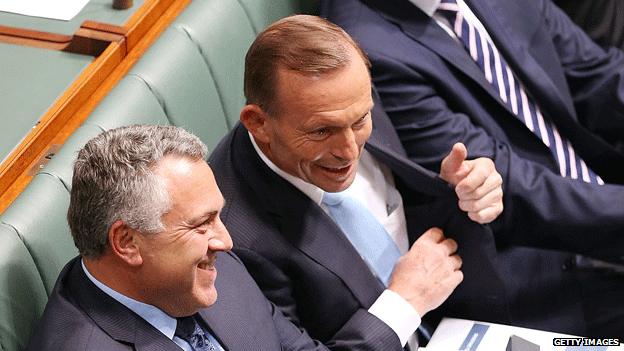
Prime Minister Tony Abbott has backed away from ending the "age of entitlement"
This time last year, Tony Abbott and his team said they would tackle their predecessor's "debt and deficit disaster" and end the "age of entitlement" in Australia.
They vowed to slash middle-class welfare and government expenditure.
Twelve months on, this first-term government has learnt just how hard it is to get a tough budget past a hostile Senate and a public that doesn't see the need for austerity.
The budget tabled by Treasurer Joe Hockey in parliament on Tuesday night is the one you deliver to get re-elected.
Winners and losers
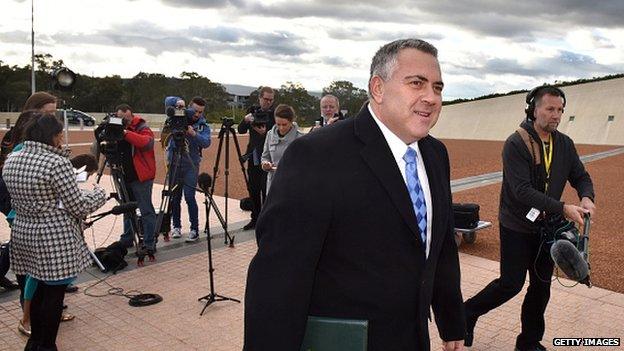
There are some budget storm clouds facing Treasurer Joe Hockey
Australia's next election is likely to be held in the second half of 2016, leaving Mr Abbott and his team a year to improve their weak standing in the opinion polls.
The budget's centre piece is a A$4.4bn ($3.5bn, £2.4bn) families package that will be funded by a cut in the country's existing family tax benefits. Childcare assistance will be increased for families with parents who are both in the workforce although stay-at-home parents will lose childcare subsidies. There are also new subsidies for nannies.
Winners and losers have been created also among pensioners, one of Australia's most vocal and powerful lobby groups. Those living on modest incomes will get more money but wealthier retirees who own a home and other assets will lose some of their government benefits.
Plans to make it much harder for young people to get unemployment benefits have been dropped, and small business will benefit from a modest tax cut.
Much of the budget had been strategically leaked to the press or publicly announced by the government in the days leading up to the formal announcement, creating the "dull and routine" document Mr Hockey had promised.
But there is still an elephant in the room: a A$35bn deficit is estimated for the year 2015-16. It is not as bad as some economists had forecast but worse than anyone anticipated a year ago and it will take some effort to shift.

The stay-at-home mother
Gelareh Chawla, who lives in Sydney's north west, has just had her second child.
When she was teaching, she could access government- and employer-paid parental leave schemes.
"While many countries are trying to give mothers more, ours is trying to take away the little money they do get. For the government to back-flip on their election promise to help mothers is just unconscionable. That doesn't seem very family-friendly to me," she said.
The small business-owner
Vanessa Emilio owns a small Sydney business that sells templates for common legal documents such as wills.
"It's great to see my company tax reduced from 30% to 28.5%. At least it is putting the money back into the pocket of businesses that are a vital part of the economy.
"But if the government really wanted to do something they'd cut the huge quantity of red tape around small business."

- Published11 May 2015
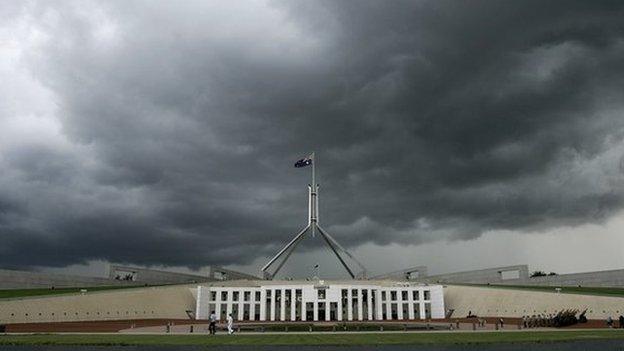
- Published11 May 2015
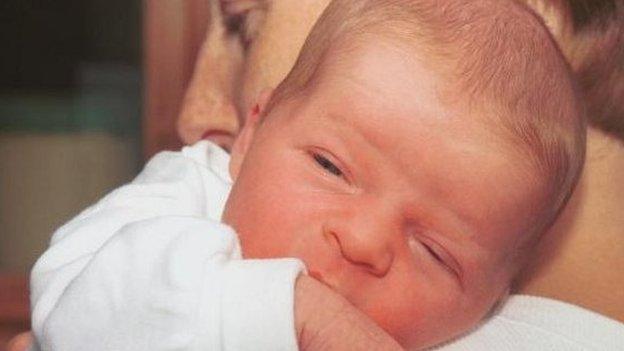
- Published7 May 2015
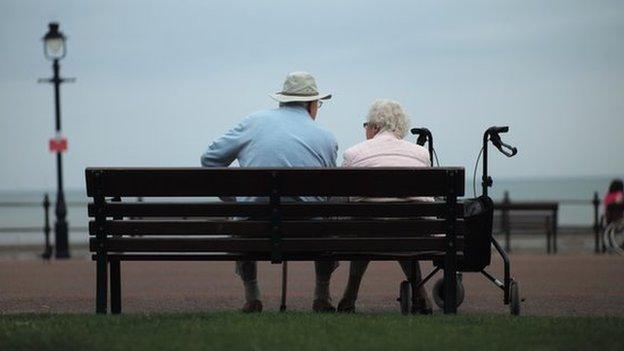
- Published14 April 2015
